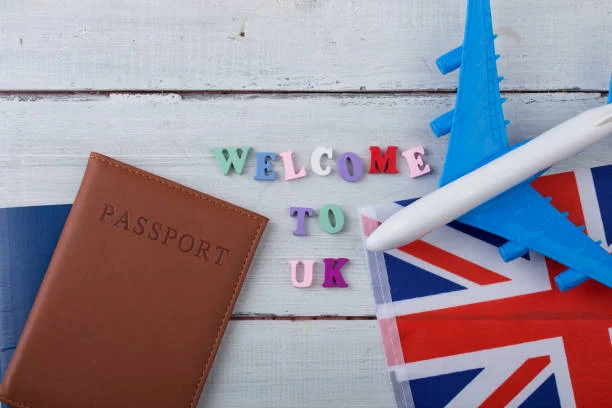When you are married to someone who lives in another country, you quickly realise that reuniting with them physically will involve some planning and extensive legal paperwork. If your partner is a British citizen and you intend to join them in the UK, you may need to apply for a Spouse visa.
In this article, we will discuss everything you need to know about the UK Spouse visa process as a family, including eligibility, required documents, and relocation tips. We hope this guide makes your journey a little easier.
An Overview of the UK Spouse Visa
The UK Spouse visa is a type of family visa that enables non-UK partners of British citizens or settled persons (those with Indefinite Leave to Remain) to reside in the UK with their spouse or partner.
You can apply for a Spouse visa if you are legally married or in a civil partnership, of at least two years, with a British or settled person.
The initial visa is granted for 33 months if the application is made from outside the country. You can renew your visa for an additional 30 months upon expiration. After five years of continuous residence, you may be eligible to apply for Indefinite Leave to Remain (ILR), a major step towards obtaining British citizenship.
Enrich your scroll with one more read we think is worth it.
The Requirements to Apply for a Spouse Visa
To apply for a Spouse visa, you and your partner must be at least 18 years of age. Your partner must be one of the following:
- A British citizen
- An Irish citizen
- A settled person with Indefinite Leave to Remain (ILR) or EU Settled Status
- A person with pre-settled status,
- A Turkish Businessperson visa or Turkish Worker visa holder
- A person with protection status, such as leave to remain or permission to stay as a refugee or a person with humanitarian protection.
You and your spouse must also:
- Be in a civil partnership or marriage that is recognised in the UK.
- Have a genuine and subsisting relationship.
- Have lived together for at least 2 years before applying.
- Intend to live together permanently upon your arrival in the UK.
- Have suitable accommodation in the UK.
A key requirement for the Spouse visa is the minimum income threshold. To join your partner in the UK, they must prove to the Home Office that they earn at least £29,000 annually. This income can be either salaried or non-salaried, including wages from employment, pensions, or savings.
Furthermore, you must demonstrate your knowledge of English by passing a Secure English Language Test (SELT) at an A1 on the Common European Framework of Reference for Languages (CEFR) scale. You can also submit a relevant degree taught in English to prove your language proficiency.
The Step by Step Application Process for the Spouse Visa
Applying for a UK Spouse visa may feel overwhelming at first, but breaking it down into manageable steps can help you. Here’s a guide based on our own experience:
Step 1: Prepare Your Documents
Before starting your application, gather all required documents. These help prove the genuineness of your relationship and your eligibility for the visa. You’ll need:
- Valid passports for you and your partner
- Your marriage certificate or proof of long-term relationship
- Proof of your partner’s UK citizenship or settled status
- Evidence of cohabitation (for unmarried partners)
- Financial documents (e.g. payslips, bank statements) to show you meet the minimum income requirement
- English language test certificate)
- Tuberculosis test results (if required for your country)
- Proof of adequate accommodation in the UK
- Photos, chats, call logs, or joint travel bookings to support your relationship history
It’s important to organise everything neatly and label your evidence clearly. This helps immigration officers understand your story without confusion.
Step 2: Submit the Online Application
Once your documents are ready, visit the official UK Visas and Immigration (UKVI) website to complete the online form. You’ll need to create an account and answer questions about your relationship, finances, and personal details. Be honest and consistent as any mismatch with your documents could raise red flags.
Step 3: Pay the Fees and Health Surcharge
After completing the form, you’ll pay the visa application fee and the IHS. These costs can fluctuate from year to year, but as of 2025, the visa application fee for applicants outside the UK is £1,938.
The Immigration Health Surcharge is £1,035 per year. That means you must pay £3,105 for a 33 33-month stay. Be sure to use a reliable payment method and keep records of your receipts.
Step 4: Book a Biometric Appointment
After payment, you’ll be directed to book a biometric appointment at a local visa application centre. At this appointment, you’ll provide your fingerprints and digital photo, and may be required to submit your passport and original documents. Your passport may be held while the application is processed.
Step 5: Wait for a Decision
Once your biometrics are done, all that’s left is to wait. The standard processing time for a UK Spouse visa is usually 12 weeks. During this period, you can track your application online or via email. If UKVI needs more information, they may contact you or your partner for clarification.
Relocating to the UK With Family
Once you receive a notification that your UK Spouse visa has been approved, you can begin preparing your family for the big move.
Note that instead of the traditional visa vignette (sticker) in your passport, you will now be issued an eVisa, an electronic record of your immigration status. Once you arrive in the UK, you will use this eVisa to prove your right to live, work, and access services.
Your visa also gives you access to the National Health Service (NHS), thanks to the Immigration Health Surcharge you paid during your application. You can register with a local GP soon after arriving.
One of the first things you’ll want to do as a family is settle the kids into school. In the UK, school-aged children are entitled to a place at a state school. Check with your local council to find nearby schools and apply for placement as soon as possible.
As the spouse visa holder, you are allowed to work or be self-employed without needing a separate work permit.
You can find local community centres, faith groups, or support hubs in your area. You might meet other families who’ve gone through similar journeys, which can be comforting and help you integrate easily.
Relocating across borders is no small task. If your case is particularly complex or if you foresee challenges with your documentation, it may be worth seeking help from a qualified immigration lawyer. They can help determine your eligibility for the Spouse visa, prepare your application, and offer relocation services.
Feed your soul with knowledge—explore the rest of the story on Management Works Media.






